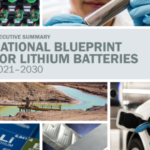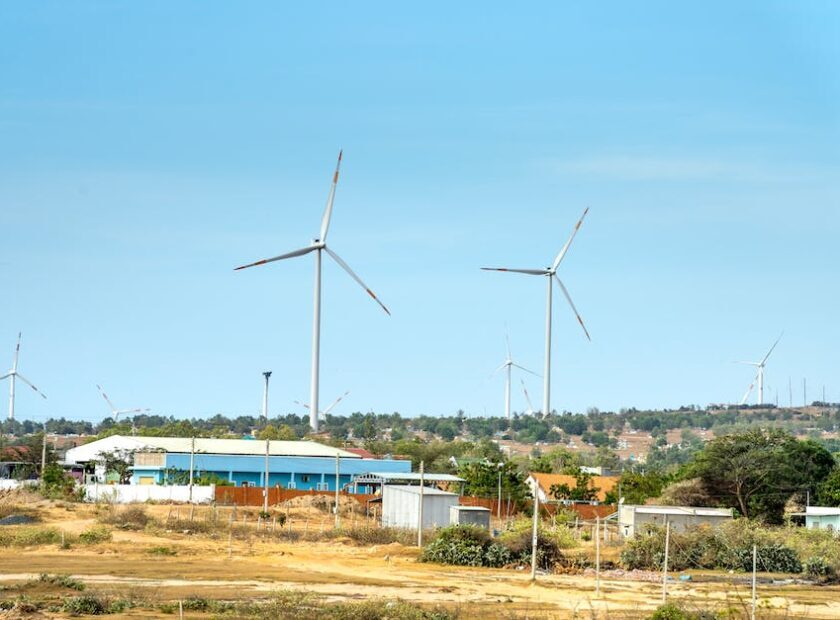Unleashing the Power of Lithium-Ion Batteries in Resilient Energy Storage
Introduction to lithium-ion batteries
Lithium-ion batteries are a popular choice for energy storage due to their high energy density, lightweight design, and long lifespan. These batteries are commonly used in various applications, such as portable electronics, electric vehicles, and renewable energy systems. They work by moving lithium ions between the positive and negative electrodes, creating an electrical current. The introduction of lithium-ion batteries has significantly transformed the field of energy storage, enhancing the efficiency and reliability of power systems.

Advantages of lithium-ion batteries for energy storage
Lithium-ion batteries offer several advantages for energy storage. They have a high energy density, which means they can store a large amount of energy in a small, lightweight package. This makes them ideal for applications where space and weight are a concern, such as in electric vehicles or portable electronic devices. Additionally, lithium-ion batteries have a long cycle life, meaning they can be recharged and discharged many times before they start to lose their capacity. They also have a low self-discharge rate, which means they can hold their charge for a long time when not in use. These qualities make lithium-ion batteries a reliable and efficient choice for resilient energy storage solutions.
Types of lithium-ion batteries commonly used
Lithium-ion batteries come in various types, each with its own unique characteristics and applications. The most common types used for energy storage include:
- Lithium Cobalt Oxide (LiCoO2): This type provides high energy density, making it suitable for consumer electronics like smartphones and laptops. However, it is less stable and has a shorter lifespan compared to other types.
- Lithium Manganese Oxide (LiMn2O4): Known for its safety and stability, this type is often used in power tools and medical devices. It offers a good balance between energy density and lifespan.
- Lithium Iron Phosphate (LiFePO4): With a long lifespan and high thermal stability, this type is commonly used in electric vehicles and solar energy storage systems. It is known for its safety and withstands high temperatures without the risk of thermal runaway.
Each type has its own set of advantages and limitations, so it’s essential to consider these factors when choosing the right lithium-ion battery for your energy storage needs.
The role of resilient energy storage in modern society
Resilient energy storage plays a crucial role in modern society by providing a reliable and sustainable source of power. It enables the integration of renewable energy sources such as solar and wind into the power grid, ensuring a stable supply of electricity. Additionally, resilient energy storage systems help to enhance grid stability, reduce energy costs, and provide backup power during outages or emergencies. These benefits contribute to a more efficient and resilient energy infrastructure, ultimately leading to a more sustainable and reliable energy supply for communities and industries.
Challenges facing resilient energy storage
One challenge in resilient energy storage is the high cost of lithium-ion batteries. These batteries are expensive to manufacture, and their prices can fluctuate due to factors like supply and demand. Another challenge is the limited lifespan of lithium-ion batteries, which can affect the long-term sustainability of energy storage systems. Additionally, the disposal and recycling of lithium-ion batteries present environmental concerns, as they contain toxic materials that require proper handling. Battery degradation and safety are also significant challenges, as they can affect the performance and reliability of energy storage systems.
Applications of lithium-ion batteries in resilient energy storage
Lithium-ion batteries are being widely used in resilient energy storage applications. They offer a reliable and efficient way to store energy for various purposes. Here are some common applications of lithium-ion batteries in resilient energy storage:
- Grid Energy Storage: Lithium-ion batteries are used to store excess energy generated by renewable sources such as solar and wind, making it available for later use during peak demands.
- Emergency Backup Power: These batteries provide backup power for critical infrastructure, including hospitals, data centers, and communication networks, ensuring uninterrupted operation during power outages.
- Microgrids: Lithium-ion batteries are integrated into microgrids to store and distribute energy locally, reducing reliance on centralized power grids and enhancing energy resilience.
Lithium-ion batteries are becoming increasingly essential in resilient energy storage, offering a robust and versatile solution for storing energy when and where it’s needed.
Innovations in lithium-ion battery technology
Lithium-ion batteries have seen significant advancements in technology. These innovations have improved their energy density, charging speed, and overall performance. Some key developments include the introduction of solid-state electrolytes, which promise increased safety and energy efficiency, as well as the utilization of silicon anodes to enhance battery capacity. Additionally, research into new cathode materials, such as lithium nickel manganese cobalt oxide (NMC), has shown promise in improving battery longevity and stability.
Future outlook for resilient energy storage
Lithium-ion batteries are expected to play a crucial role in the future of resilient energy storage. They offer high energy density and long-lasting performance, making them well-suited for storing renewable energy from sources like solar and wind power. With ongoing research and development, the cost of lithium-ion batteries is expected to decrease, making them more accessible for energy storage applications. Additionally, advancements in battery technology are also focused on improving safety and environmental sustainability, paving the way for a more reliable and eco-friendly energy storage solution.
Environmental impact and sustainability considerations
Lithium-ion batteries have a lower environmental impact compared to traditional lead-acid batteries. Lithium-ion batteries also have a longer lifespan, are more energy-efficient, and have a higher energy density, which means they can store more energy in a smaller space. However, the extraction and production of lithium for these batteries can have negative environmental effects, such as water pollution and depletion of natural resources. Additionally, the disposal of lithium-ion batteries can pose environmental hazards if not handled properly. Therefore, it is crucial to consider the overall environmental impact and sustainability of lithium-ion batteries in resilient energy storage.
Conclusion and key takeaways
Lithium-ion batteries are a promising option for energy storage due to their high energy density, long lifespan, and efficient performance. In conclusion, they offer a viable solution for resilient energy storage. Key takeaways from this blog include the potential for lithium-ion batteries to revolutionize the energy storage industry, their ability to integrate with renewable energy sources, and their role in enhancing grid stability. As technology continues to advance, lithium-ion batteries are expected to play a significant role in shaping the future of energy storage.


